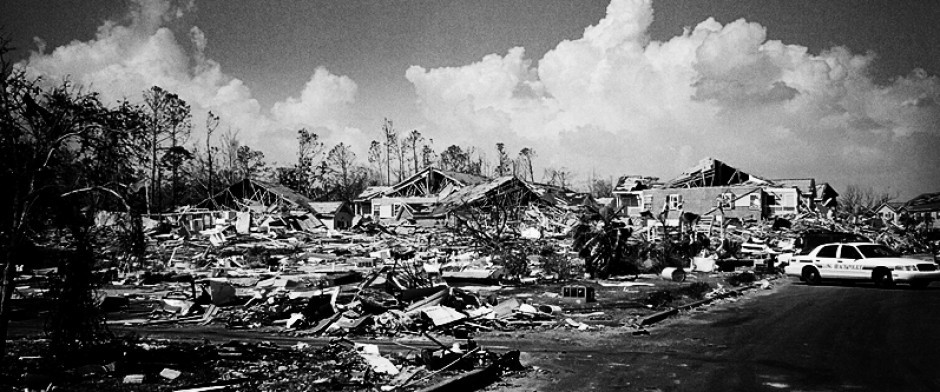
From the beginning, we considered Afghanistan the more difficult war…it will be so even after we retreat. The longest war in American history is coming to a close as an indecisive strategic defeat for the US and NATO just as I predicted over a decade ago. The war was fought against an enemy with an extremely low level of capability, but our generals refused to recognize the critical importance of stopping the enemy’s movement to and from its cross-border sanctuary even when presented with overwhelming analyses. Specifically, the failure of border security to be made a priority in the overall counterinsurgency strategy all but guaranteed the inevitable exhaustion and defeat of the occupation force. Embarrassingly, the hard truth is the “most powerful” and certainly the most expensive military in history failed to decisively defeat the Taliban and Al Qaeda. The US/NATO defeat was not for lack of manpower or firepower, it was a defeat born of intellectual incompetence and utter dereliction by our senior leadership. Importantly, the critical failure responsible for the US/NATO defeat remains at the senior echelons within the US military and White House, is systemic, and remains uncorrected. Now, just like in Iraq, we are told by President Obama and his appointees that Afghans will take over operations and complete the mission. The chances of the Afghans defeating the Taliban are zero and we must be prepared for the inevitable consequences.
First, I want to support my certainty that most of Afghanistan will be overrun by the Taliban. To do this we need only to look at the current status of the war. To date, the combined power of the US and NATO has after 14 years proved unable to defeat the Taliban. However, we are told to believe by Obama and his generals that the Afghans, with a relative few Americans in support, will be capable of cleaning up the mess and decisively defeating the Taliban. The result of this is another easily predictable, preordained defeat. Afghanistan’s new president, Ashraf Ghani, simply will not be able to hold on to Kabul, much less the whole of Afghanistan, and will likely meet the same fate as his earlier predecessor Mohammad Najibullah Ahmadzai at the hands of the Taliban. Further, it is appearing more likely that this will not just be a Taliban victory, but may be completed under the unified banner of ISIL.
Leaving around 12,500 US forces in Afghanistan is a folly and will not drastically alter the end state in Afghanistan beyond extending the date of Kabul’s fall by perhaps a couple years. Further, our intelligence picture is a mere sliver of what it was at the height of the occupation and our leadership still hasn’t been fired for incompetence. Without completely new leadership, even the entirety of the US military will not be able to achieve victory as we have already witnessed. The combined effect of this strategic debacle will leave our troops blind in the field pursuing a failed strategy in vain. This is far worse than simply withdrawing since we will continue to expend lives and money and not change the ultimate outcome. In short, if we are comfortable with a Taliban takeover, then pull everyone out. If not, you will need to get back into Afghanistan and decimate the Taliban on both sides of the Afghanistan-Pakistan border. Either fight the war and win decisively or leave. You cannot win a war on the cheap with half measures. As we withdraw, we turn over province after province to the Taliban. The noose is quickly tightening and soon our troops will be finding themselves collapsing toward Kabul in one untenable location after another until we reach as I like to say, our “Saigon Moment.”
The Taliban may not win the long war, but they have certainly won the day by holding their ground against another superpower. They are emboldened and see Kabul as vulnerable. Once the bulk of US forces have retreated from Afghanistan, the Taliban will attack in force beginning this spring. Kabul will lose its entire periphery within one to two years and Kabul itself will fall within two to three years barring a massive return of US forces. I generally do not like to make comparisons between Iraq and Afghanistan; however there is something to be learned from the emergence of ISIL. The core of ISIL arose from fighters holding areas the US failed to decisively pacify during the Second Iraq War. The Taliban are already demonstrating this regenerative capability as the US pulls out. Further, it is clear from intelligence that ISIL already has established cells over much of the country. It doesn’t take a brilliant thinker to see that a large portion of Afghanistan may soon become a safe haven for Islamic extremists aligned under the banner of ISIL.
Considering the chain of events, the US is moving into a very precarious geopolitical position. Not only will the Taliban see the US as weak and vulnerable, but major powers like Russia and China will see the US as a nation that has sunset and continue to exert greater influence over the global geopolitical chessboard. Combined with an expanding ISIL movement across the Middle East and North Africa, it is a very real possibility that we will witness the realization of a radical Islamic state that spans from Asia to Africa. In this event, the terrorist state will acquire significant quantities of modern military weapons to include chemical and biological agents. These weapons will be used against the US and Europe. Already, it is clear both Iraq and Afghanistan will fall without significant outside intervention. Libya and Yemen have already fallen. Jordan, Kuwait, Saudi Arabia, and Pakistan are all very vulnerable. Much of Africa is also primed for being overrun.
The US will undoubtedly get sucked deeper into this Islamic conflict because it does not have a winning strategy, has fools for leaders in both the White House and Pentagon, and is making decisions at the behest of special interests. Critical allies such as Saudi Arabia may be toppled, which would signal the end of the petrodollar. As a result, the US will become increasingly weaker, indebted, and overextended. If current policies are followed, the US will reach a break point where it is forced to concede defeat and retreat globally or launch an all-out world war, which would also have disastrous consequences. Either way, the outcomes are dire if radical policy changes are not made immediately. Ultimately, what will materialize will look like the last gasps of an empire in collapse to historians. Prosecution of this global war can only end in economic ruin for the US, which is by default a total defeat. The US without its tax base or a reliance by the world on the dollar as its reserve currency simply will not be able to pay for these endless wars. Without this financing, the US faces a global endgame that leaves our nation in collapse and our generation to suffer it. My conclusion is much of this will play out as described so please make preparations accordingly.
By Guiles Hendrik
March 1st, 2015


